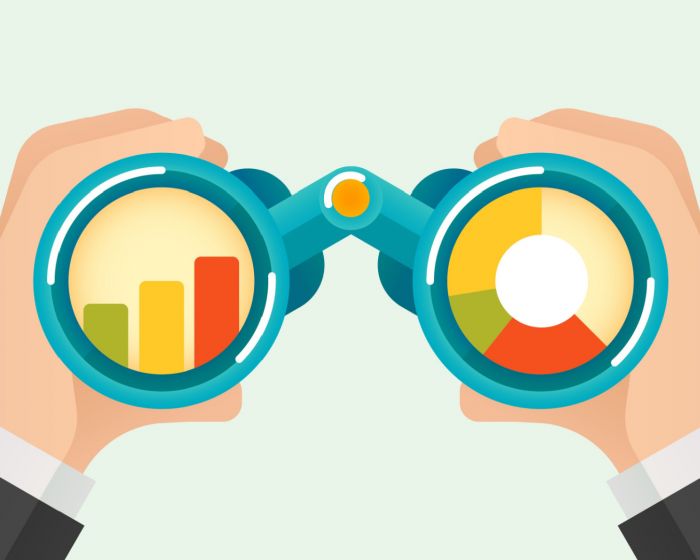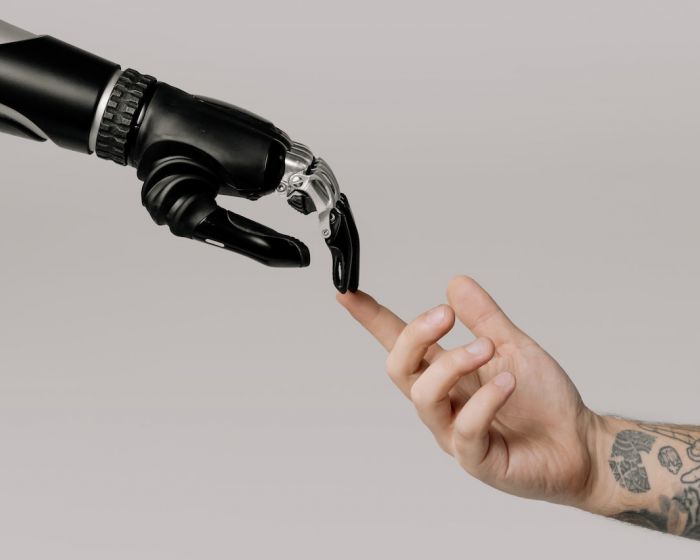In the past few decades, digital marketing has undergone a remarkable transformation. What started out as a simple extension of traditional marketing methods has turned into a complex and dynamic field, driven by rapid technological advancements and changing consumer behaviours.
Keep reading to learn all about the evolution of digital marketing, as we explore its past, present and future.
The Past: The dawn of digital marketing
The start of the sector
Digital marketing's roots can be traced back to the early 1990s with the advent of the internet. The first banner ad was launched in 1994. It marked a significant milestone. Advertisers began to note the internet’s potential as a marketing tool. From there, the concept of online advertising began to take shape. Early digital marketing was mainly focused on basic banner ads, email marketing and very basic search engine optimisation (SEO).
The rise of search engines and email marketing
Do your remember Yahoo!? It was one of the first ever search engines. From there, Google entered the scene, and SEO became a vital component of digital marketing as businesses sought to rank as high as possible in search engine results.
Email marketing also began to grow in popularity, with businesses gradually adopting campaigns to reach potential customers directly. However, these efforts often featured spammy practices and none of the sophisticated targeting that we are used to today.
The emergence of social media
In the early 2000s saw the birth of social media platforms. The early contenders included Myspace, Friendster, and from there, Facebook and Twitter – which has since been changed to X.
These platforms revolutionised digital marketing by giving businesses with new ways to engage with their audience. Social media marketing started to take shape, allowing brands to create communities, share content and interact with customers in real time.
The Present: The digital marketing boom
Sophistication and integration
Today, digital marketing is a complex, multifaceted discipline. It involves the implementation of a wide range of strategies and technologies. The modern digital marketing landscape is sophisticated, precise and data-driven. Marketers now take advantage of advanced tools and techniques to reach and engage their target audience effectively.
The power of data and analytics
Data analytics effectively forms the foundations of digital marketing. Marketers can now track and measure every aspect of their campaigns, from website traffic and conversion rates to customer behaviour and engagement metrics. This data-driven approach allows businesses to make informed decisions, optimise their strategies and achieve better results.
Content is king
What was once thought of as a passing trend is absolutely here to stay. Content marketing is an absolutely dominant force in the realm of digital marketing. Content today needs to be of the highest quality. Gone are the days of writing copy simply to stuff in keywords. Today. It must be relevant, well-written and interesting in order to attract and retain customers.
The most successful brands invest heavily in creating valuable content, including blog posts, videos, infographics and podcasts. Content marketing not only has the power to drive organic traffic – it establishes your brand as authoritative and trustworthy.
The role of social media
Social media platforms have evolved into powerful marketing tools. Facebook, Instagram, X, LinkedIn – as well as newer platforms like TikTok – provide businesses with diverse opportunities to connect with their audiences. Social media advertising, influencer marketing and community engagement are now fundamental components of digital marketing strategies.
Mobile marketing and the rise of apps
Smartphones are absolutely EVERYWHERE. They have transformed how businesses approach digital marketing. Mobile marketing, including SMS campaigns, mobile apps and mobile-friendly websites, is essential for reaching consumers on-the go. The rise of mobile apps has also opened new avenues for direct interaction and engagement with customers.
Personalisation and Customer Experience
Personalisation is no longer a luxury but a necessity in digital marketing. Consumers expect tailored experiences, and businesses are leveraging data and AI to deliver personalised content, recommendations, and offers. Enhancing the customer experience through seamless interactions and relevant messaging has become a top priority.
The Future: The next frontier of digital marketing
Artificial Intelligence and Machine Learning
The future of digital marketing is closely tied to the advancements in artificial intelligence (AI) and machine learning. AI-powered tools can analyse vast amounts of data, predict consumer behaviour, and automate tasks such as content creation, customer segmentation, and ad targeting. Chatbots and virtual assistants will become more sophisticated, providing personalised customer support and enhancing the overall user experience.
The Internet of Things (IoT)
The Internet of Things (IoT) is set to revolutionise digital marketing by connecting everyday devices to the internet. Smart devices will generate valuable data that marketers can use to understand consumer preferences and behaviours better. IoT-enabled marketing will enable hyper-targeted campaigns and real-time interactions with customers.
Voice search and smart assistants
Voice search is gaining popularity with the rise of smart assistants like Amazon's Alexa, Google Assistant, and Apple's Siri. Optimising for voice search will become crucial as more consumers use voice commands to find information and make purchases. Voice-activated marketing strategies will focus on delivering concise, relevant, and engaging content.
Augmented Reality (AR) and Virtual Reality (VR)
AR and VR technologies are poised to transform the way consumers interact with brands. Augmented reality can enhance the shopping experience by allowing customers to visualise products in their environment. Virtual reality can create immersive brand experiences, from virtual store tours to interactive product demonstrations.
Blockchain and transparency
Blockchain technology holds the potential to revolutionise digital advertising by increasing transparency and reducing fraud. It can provide a decentralised and secure way to verify ad impressions, clicks, and transactions. This will enhance trust between advertisers and consumers, leading to more efficient and effective campaigns.
Ethical and sustainable marketing
As consumers become more conscious of social and environmental issues, ethical and sustainable marketing practices will gain prominence. Brands that prioritise transparency, ethical sourcing, and sustainability will resonate with socially conscious consumers. Digital marketing will play a vital role in communicating these values and building authentic connections.
The human touch in a digital world
While technology will continue to drive digital marketing innovations, the human touch will remain essential. Building genuine relationships, understanding customer emotions, and delivering empathetic experiences will set successful brands apart. The future of digital marketing will balance technological advancements with the need for authentic human connections.
Are you ready for the future of digital marketing?
The evolution of digital marketing from its nascent stages in the 1990s to its current state of sophistication and integration has been nothing short of extraordinary.
As we look to the future, the possibilities are endless. Advances in AI, IoT, voice search, AR, and blockchain will shape the next frontier of digital marketing. However, amidst all the technological innovations, the core principles of understanding and connecting with consumers will remain constant. The future of digital marketing will be defined by how effectively businesses can leverage technology while maintaining the human touch that builds lasting relationships with their audience.
Reach out to EWM for the most innovative digital marketing solutions.








